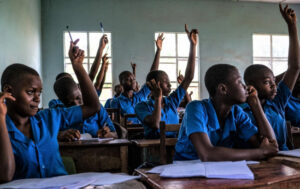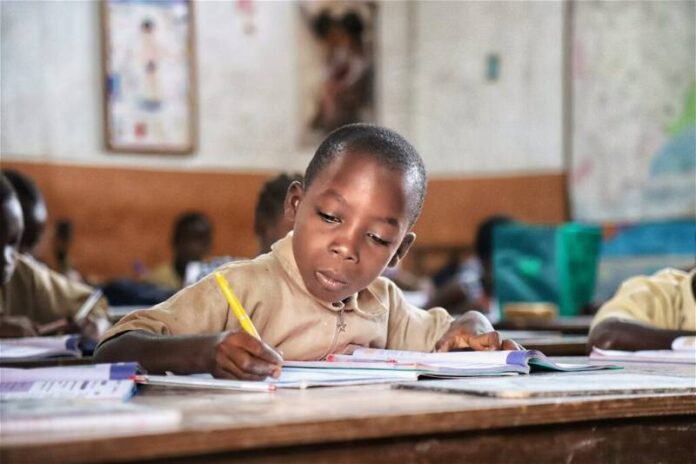Nigeria, despite gaining independence from colonial rule in 1960, continues to face significant challenges that hinder its development. Corruption, tribalism, governance mediocrity, and the pursuit of wealth at any cost have stifled progress. Education plays a crucial role in a country’s socioeconomic growth, as it empowers individuals, fosters social cohesion, and develops a collective identity necessary for a visionary future.
However, Nigeria’s education system is plagued by numerous challenges, resulting in a staggering number of out-of-school children and a lack of human capital potential. This article explores the detrimental effects of inadequate education on Nigeria’s economic development, security, and overall societal well-being.

According to a recent report by the United Nations Children’s Fund (UNICEF), Nigeria has the highest number of out-of-school children globally, standing at 18.3 million. This alarming figure highlights the challenges faced by the country’s education system, which undermines its human capital potential.
The lack of quality education hampers the development of talented individuals, who could otherwise contribute significantly to the nation’s progress. Instead, these untapped talents often end up being exploited as political thugs or engaging in destructive activities.
Education is the foundation for development in any nation. While infrastructure projects such as building roads and bridges are essential, neglecting the development of human capacity is shortsighted. As Kingsley Moghalu,t
The president of the Institute for Governance and Economic Transformation, emphasizes, unschooled citizens lack the values to appreciate and maintain social investments. It is crucial for Nigeria to prioritize education to create a well-educated populace that can address local challenges, elevate societal well-being, and foster social cohesion.
The consequences of having a large number of unschooled individuals extend beyond social and economic implications. Nigeria loses an estimated N46 billion to destructive acts caused by unschooled individuals. For instance, the illegal mining of sands under critical infrastructure such as bridges leads to significant damages, requiring substantial financial resources for repairs.
The amount spent on repairing just two bridges in one state is nearly equivalent to the allocation for the student loan scheme. This highlights the misplaced priorities of the government, which fails to invest adequately in education and human capital development.
The Nigerian government’s inadequate funding of education has resulted in a lack of skilled and educated citizens. Despite UNESCO’s recommendation that developing nations allocate 10-15% of their budgets to the education sector, Nigeria’s allocation is as low as 7.9% in 2024.
Moreover, the quality of the education system suffers due to deficient infrastructure and a significant percentage of unqualified teachers. To address this crisis, the government should learn from countries like Seychelles, which prioritize education and allocate a significant portion of their expenditure to this sector.
The lack of adequate education has contributed to the rise of youth violence, terrorism, and gangsterism in Nigeria. Uneducated individuals are more susceptible to manipulation and recruitment by extremist groups, further destabilizing the country’s security.
The government must recognize that addressing these security challenges requires a holistic approach that includes providing essential amenities, such as quality education, to the citizens. By adopting a soft security governance approach, the government can foster development and reduce the appeal of militancy.
Nigeria’s journey towards development and security is hindered by the lack of quality education and the high number of out-of-school children. Investing in education is crucial for unlocking Nigeria’s human capital potential, fostering social cohesion, and addressing local challenges.
The government must prioritize education by increasing funding, improving infrastructure, and ensuring qualified teachers. Only through a well-educated populace can Nigeria overcome the obstacles that impede its progress, strengthen its economy, and create a more secure and prosperous future for its citizens.




